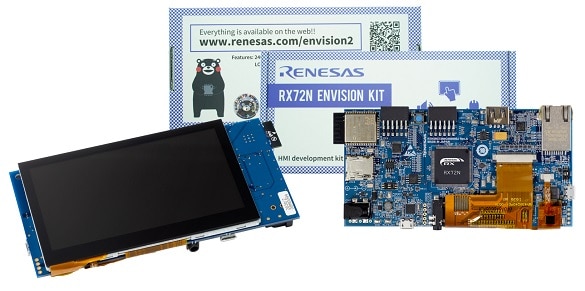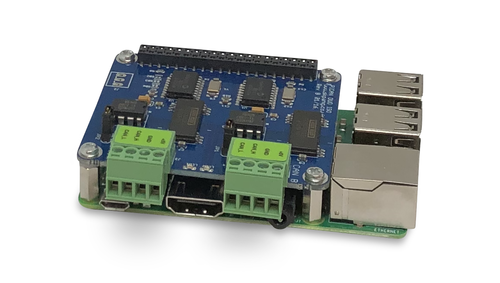Recent Posts
RX72N Family Of 32-bit Microcontrollers Supports Three CAN Bus Ports, Two Ethernet Channels
Posted by on
Renesas Electronics Corporation introduced its RX72N Group of 32-bit microcontrollers, which are part of the RX Family that combines equipment control and networking functionality on a single chip.
The RX72N Group microcontrollers come with the third-generation RX CPU core, the RXv3 core, and these high-performance products run at 240MHz. Real-time control and networking of equipment are possible through a single chip with 4MB flash memory capable of reading operations at 120MHz, 1MB of SRAM, and 182 general-purpose I/O ports.
The device maintains high-end HMI functionality for high-level display capability. It supports security capability, essential for industrial and consumer equipment. The RX72N can also contribute to the miniaturization of the enclosure and the optimization of the development cycle.
Key Features
- 240MHz RXv3 core, double-precision FPU, and register bank save function that speeds up interrupt response
- 4MB flash memory (120MHz read access, dual bank), 1MB SRAM
- 182 general I/O ports
- 2-channel Ethernet, SD Host interface, USB 2.0 Full Speed, 3-channel CAN Bus, QSPI
- Trigonometric calculators (sin, cos, arctan, hypot) to speed up motor vector control
- TFT LCD controller, 2D drawing engine, serial sound interface, CMOS camera interface
- Encryption engines (AES, 3DES, RSA, ECC, SHA, TRNG), key management, flash memory protection
- Single power supply with operation from 2.7V to 3.6V
- Operating ambient temperature: -40 to 85°C or -40 to 105°C
Raspberry Pi 3 B+ System With Dual Isolated CAN Bus Interface
Our Raspberry Pi 3 System With CAN Bus Interface (PiCAN2) comes with a pre-installed Raspbian operating system.
High noise levels on a CAN bus network have the potential to destroy CAN bus transceivers. This noise originates mainly from two sources, ground loops and electrical line surges. Protecting a network against this destructive energy requires the galvanic isolation of the CAN bus system from other local node circuitry.
The PiCAN2 DUO ISO board provides two independent isolated CAN-Bus channels for the Raspberry Pi. It uses the Microchip MCP2515 CAN controller in combination with the Texas Instruments ISO1050 isolated CAN transceiver. Connections are made via 4 way screw terminal plugs.
There is an easy-to-install SocketCAN driver, and programming can be accomplished in C or Python.
 Loading... Please wait...
Loading... Please wait...


